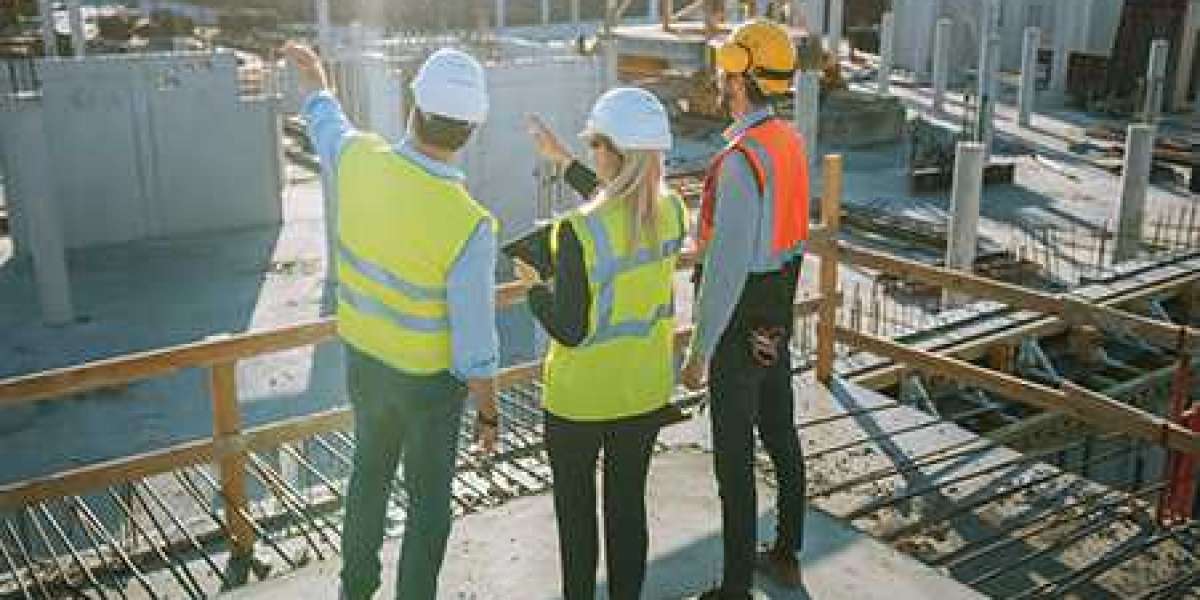Introduction
Securing financing for a lodging development venture is a basic step in turning your vision into a reality. A hotel construction loan can provide the necessary funds to build a new hotel, renovate an existing property, or convert a building into a hospitality space. In this comprehensive guide, we’ll explore everything you need to know about hotel construction loans, from understanding the basics to navigating the application process and overcoming common challenges. Whether you’re an experienced developer or a first-time borrower, this guide will equip you with the knowledge and insights needed to secure the financing you need for your hotel project.
Understanding Hotel Construction Loans
What is a Hotel Construction Loan?
A hotel construction loan is a type of commercial real estate loan designed specifically for financing the construction or renovation of hotel properties. These loans cover the costs associated with building, refurbishing, or converting a property into a hotel. Unlike traditional commercial loans, hotel construction loans are tailored to address the unique challenges and requirements of hospitality projects.
Types of Hotel Construction Loans
There are several types of hotel construction loans available, each suited to the different stages and needs of a hotel project:
Bridge Loans:
Short-term loans provide temporary financing until a more permanent solution is secured.
Mezzanine Financing:
A hybrid of debt and equity financing that allows for more flexibility and higher leverage.
Permanent Loans:
Long-term financing that replaces the construction loan once the hotel is operational and generating revenue.
SBA Loans:
Loans backed by the Small Business Administration, offer favorable terms for smaller hotel projects.
Differences Between Hotel Construction Loans and Other Commercial Real Estate Loans
Hotel construction loans differ from other commercial real estate loans in several ways:
Higher Risk:
Hotels are considered high-risk projects due to their reliance on occupancy rates and seasonal revenue fluctuations.
Complex Underwriting:
Lenders conduct thorough due diligence, including market analysis and financial projections.
Specialized Terms:
Loan terms are tailored to the specific needs of hotel projects, such as phased funding and interest reserves.
Key Factors Lenders Consider
Hotel Project Feasibility
Lenders assess the feasibility of the hotel project by examining factors such as location, market demand, and competition. A comprehensive feasibility study can significantly strengthen your loan application.
Experience and Track Record of the Developer
Developers with a proven track record of successful hotel projects are more likely to secure financing. Lenders look for experience in hotel development, construction, and operations.
Location and Market Analysis
The location of the hotel plays a crucial role in the loan approval process. Lenders prefer projects in prime locations with high demand and minimal competition. A thorough market analysis can help demonstrate the potential for success.
Financial Projections and Revenue Models
Lenders require detailed financial projections, including revenue models, operating expenses, and profitability estimates. These projections ought to be practical and based on exhaustive inquiry and analysis.
Preparing for a Hotel Construction Loan Application
Detailed Business Plan
A comprehensive business plan is essential for securing a hotel construction loan. It should include:
Executive summary
Project Overview
Market analysis
Marketing and sales strategy
Financial projections
Management team
Architectural Plans and Construction Timelines
Detailed architectural plans and construction timelines provide lenders with a clear understanding of the project's scope and schedule. Ensure that these documents are professionally prepared and include all necessary permits and approvals.
Cost Estimates and Budget Breakdown
Accurate cost estimates and a detailed budget breakdown are crucial for demonstrating financial viability. Include all costs associated with construction, furnishings, equipment, and contingencies.
Equity Contribution and Financing Needs
Lenders expect borrowers to have a significant equity contribution to the project. Clearly outline your equity contribution and total financing needs, including any gap financing required.
Loan Terms and Conditions
Interest Rates and Repayment Schedules
Interest rates for hotel construction loans can vary based on factors such as creditworthiness, loan amount, and market conditions. Understand the repayment schedule and whether it includes interest-only periods during construction.
Loan-to-Cost Ratio
The loan-to-cost (LTC) ratio is the percentage of the project's total cost that the lender is willing to finance. Lenders typically finance 70–80% of the total project cost, requiring the borrower to cover the remaining amount.
Prepayment Penalties and Exit Strategies
Some hotel construction loans include prepayment penalties if the loan is paid off early. Understand these penalties and have a clear exit strategy, such as refinancing into a permanent loan once the hotel is operational.
The Loan Approval Process
Initial Consultation and Pre-Qualification
Begin the loan approval process with an initial consultation with potential lenders. Provide them with an overview of your project and financial situation to determine pre-qualification.
Submitting the Loan Application
Once pre-qualified, submit a detailed loan application, including all required documentation such as business plans, financial projections, and architectural plans.
Underwriting and Due Diligence
During underwriting, lenders conduct a thorough review of your application, project feasibility, and financial projections. They may also perform site visits and appraisals.
Approval and Closing
If the loan is approved, the lender will issue a commitment letter outlining the terms and conditions. Review this letter carefully before proceeding to the closing, where final documents are signed, and funds are disbursed.
Challenges and How to Overcome Them
Common Challenges in Securing a Hotel Construction Loan
High-Risk Perception:
Hotels are often seen as high-risk investments due to economic fluctuations and occupancy rates.
Complex Requirements:
The extensive documentation and detailed financial projections required can be overwhelming.
Lengthy Approval Process:
The underwriting and approval process can be time-consuming, leading to delays.
Solutions and Tips for a Successful Loan Application
Strengthen Your Business Plan:
Ensure your business plan is thorough, well-researched, and professionally prepared.
Highlight Experience:
Emphasize your track record and experience in hotel development and operations.
Engage Professional Advisors:
Work with experienced advisors, such as architects, accountants, and legal experts, to strengthen your application.
Case Studies
Case Study 1: Successful Hotel Construction Loan
Project Overview:
A seasoned hotel developer sought financing for a 150-room boutique hotel in a popular tourist destination.
Challenges:
High competition in the area and stringent lender requirements.
Solution:
The developer presented a detailed feasibility study, highlighting the unique features of the hotel and strong market demand. They also demonstrated a successful track record with previous hotel projects.
Outcome:
The loan was approved, and the hotel opened on schedule, achieving high occupancy rates and profitability.
Case Study 2: Overcoming Financing Hurdles
Project Overview:
A first-time developer aimed to convert a historic building into a luxury hotel.
Challenges:
Limited experience and higher renovation costs.
Solution:
The developer partnered with an experienced hotel management company and secured additional equity investment. They provided detailed cost estimates and a robust marketing plan.
Outcome:
The lender approved the loan, and the hotel has since become a landmark property, attracting both tourists and business travelers.
FAQs
What credit score is needed for a hotel construction loan?
A good credit score, typically above 680, is preferred by most lenders. However, other factors such as experience and project feasibility, are also important.
How long does it take to get affirmed for a lodging development loan?
The approval process can take anywhere from a few weeks to several months, depending on the complexity of the project and the thoroughness of the application.
Can I use a hotel construction loan for renovations?
Yes, hotel construction loans can be used for both new construction and major renovations or conversions of existing properties.
Contact Us
If you have any questions or need assistance with securing a hotel construction loan, our team at Commercial Lending USA is here to help. With our in-house underwriting expertise and extensive experience in the hospitality industry, we can guide you through the entire loan process. Contact us today to discuss your project and financing needs.
Website: commerciallendingusa.com
Phone: (855) 365-9200
Email: sales@commerciallendingusa.com
Conclusion
Securing a hotel construction loan requires thorough preparation, detailed documentation, and a clear understanding of the lending process. By following the guidelines outlined in this comprehensive guide, you can increase your chances of obtaining the necessary financing for your hotel project. Remember, a well-prepared application, a strong business plan, and the support of experienced advisors can make all the difference in turning your hotel vision into reality. Contact Commercial Lending USA today to get started on your journey to successful hotel development.






